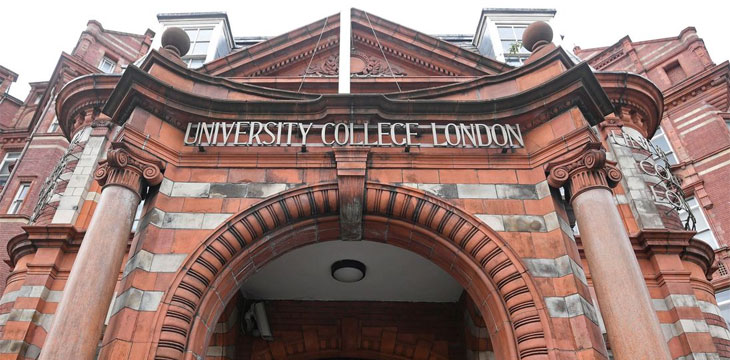|
Getting your Trinity Audio player ready...
|
The altcoin IOTA has been called out before over questionable conduct directed at anyone who speaks negatively about the platform (even though the comments are usually correct). In the latest example of supposed bully tactics of the platform, a research team was subjected to legal threats over a published report. Now, University College London (UCL) has decided to end its relationship with the IOTA Foundation over the alleged threats, and more organizations could follow.
A researcher for UCL’s Initiative for Cryptocurrencies and Contracts, Patrick McCorry, published the UCL’s official statement, in which the group said that researchers should not be concerned about legal backlash from IOTA. The statement goes further, suggesting that universities and colleges should follow the example of the UCL and end their relationships, as well.
This is a pretty important message from UCL. I hope other universities swiftly follow suit. pic.twitter.com/dSQXRJ26p9
— Patrick McCorry (💙,🧡) (@stonecoldpat0) April 27, 2018
Part of the statement reads, “UCL Centre for Blockchain Technologies is no longer associated with the IOTA Foundation. In relation to recent news report, we reaffirm our support for open security research, as a prerequisite for understanding the assurances provided by any blockchain technology. It is inappropriate for security researchers to be subject to threats of legal action for disclosing their results.”
A couple of months ago, a team of researchers led by Ethan Heilman from Boston University published a report that exposed a weakness in IOTA’s hash function, Curl. According to the report, entitled, “IOTA Vulnerability Report: Cryptanalysis of the Curl Hash Function Enabling Practical Signature Forgery Attacks on the IOTA Cryptocurrency,” IOTA’s cryptography contains a flaw that can leave the network vulnerable, leading to forged signatures and the possibility of funds being stolen.
Shortly after the report was released, Sergey Ivancheglo, IOTA’s co-founder, released a statement on social media indicating that the company was in talks with lawyers to challenge the research. Ivancheglo, as indicated by the IOTA Foundation, isn’t involved with the IOTA Foundation, although he did help found the digital currency. Ivancheglo later clarified his earlier statement, saying, “First of all I would like to clarify that IOTA Foundation is not involved at all, it is a personal business between me and Heilman. This is an important detail and in the future, talking about the matter, mention it, please.”
For its part, the IOTA Foundation has said that it never threatened any researchers. On the contrary, it publicly welcomes research. The foundation has referred to a statement by IOTA’s founder, David Sønstebø, which reads, “I denounce such acts entirely and the IOTA Foundation has condemned it repeatedly. Another unacceptable act is to willfully drive a false narrative such as Patrick McCorry is doing here for his own agenda.”
The case between the UCL and IOTA, apparently, stems from the misunderstanding that arose over whether or not Ivancheglo was, or wasn’t, a part of the IOTA Foundation when he made his remarks. Nonetheless, given IOTA’s past history of verbal assault, the threats would certainly fit the modus operandi of the organization.

 02-23-2026
02-23-2026 




